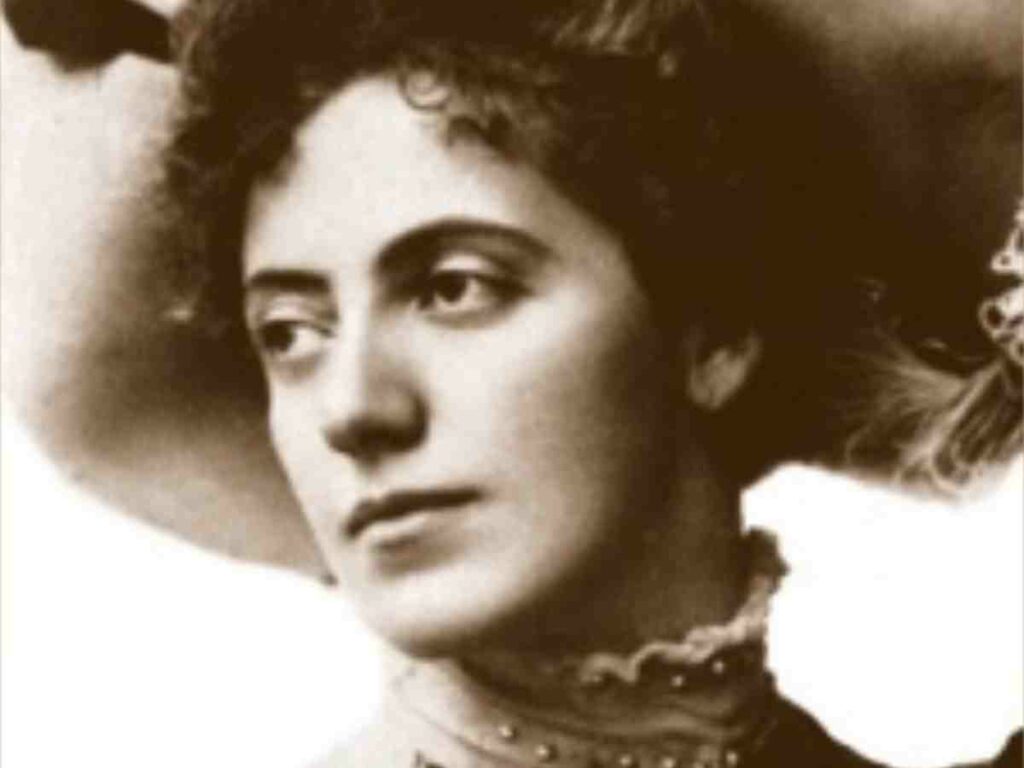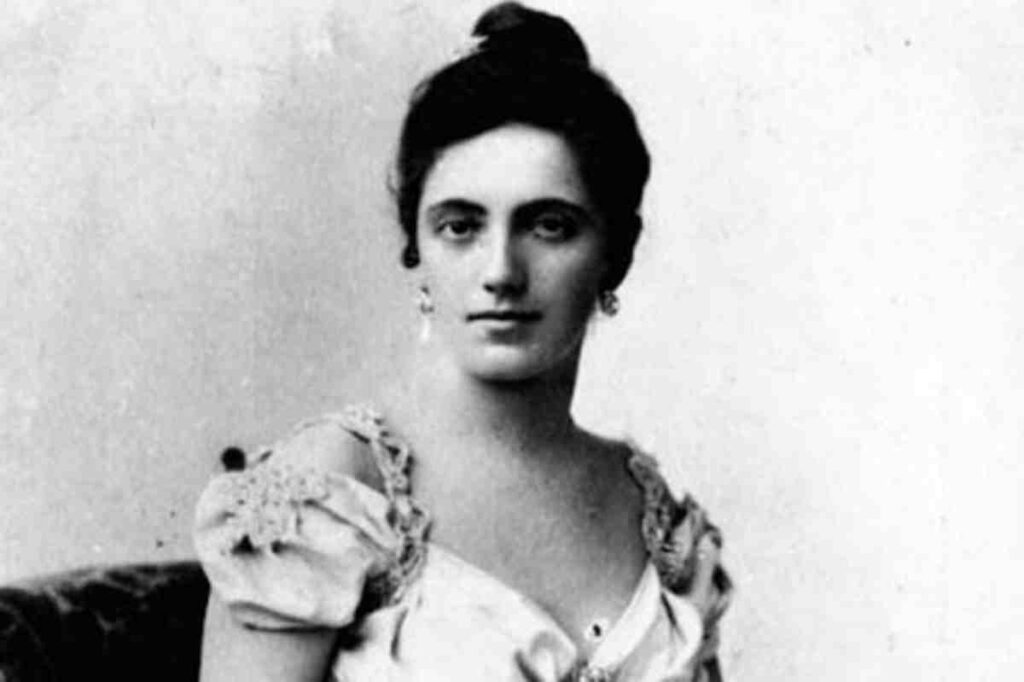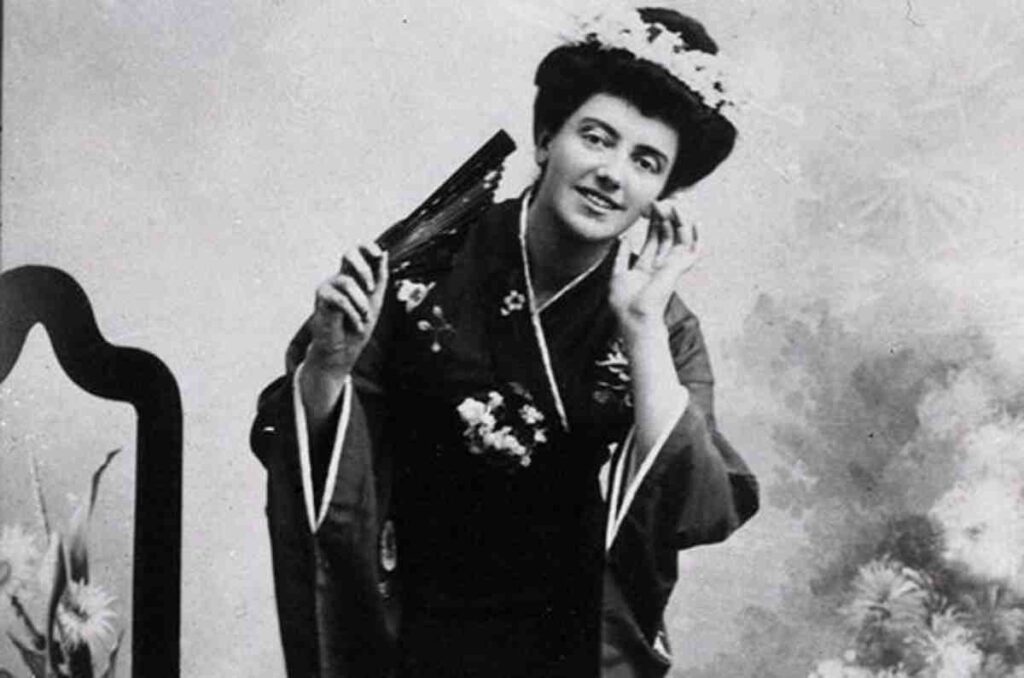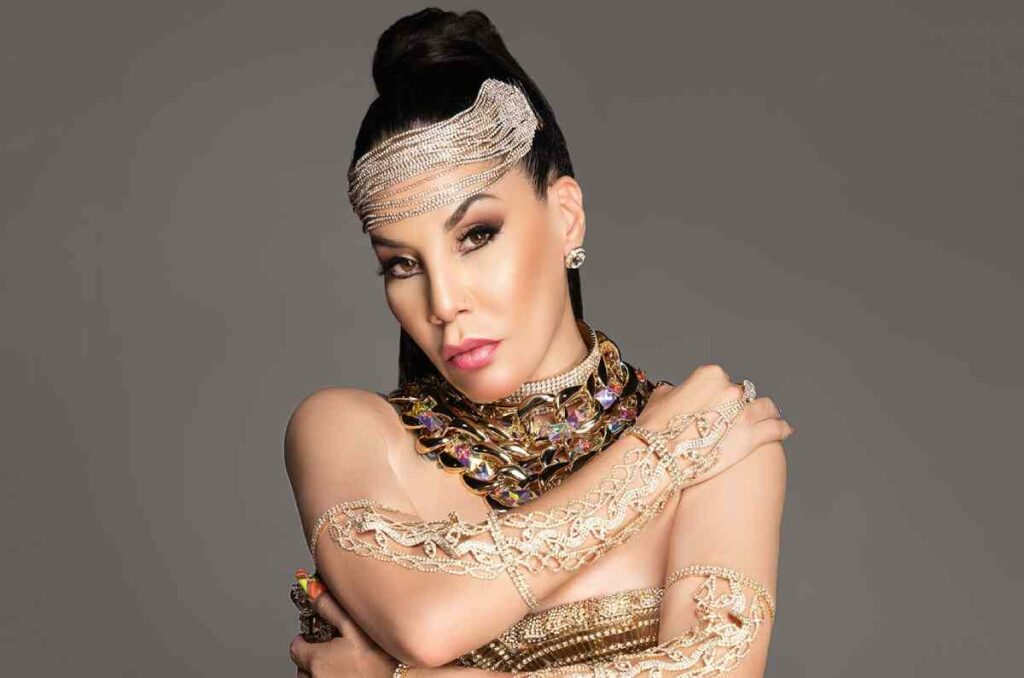The year 2017 is marked by an important anniversary for the world opera art — the famous Ukrainian singer Solomiya Krushelnytska was born 145 years ago. An unforgettable velvety voice, a range of almost three octaves, a high level of professional qualities of a musician, a bright stage appearance. All this made Solomiya Krushelnitskaya a unique phenomenon in opera culture at the turn of the XNUMXth and XNUMXth centuries.
Her extraordinary talent was appreciated by listeners in Italy and Germany, Poland and Russia, France and America. Opera stars such as Enrico Caruso, Mattia Battistini, Tito Ruffa sang on the same stage with her. The famous conductors Toscanini, Cleofonte Campanini, Leopoldo Mugnone invited her to collaborate.

It is thanks to Solomiya Krushelnytska that Butterfly (Giacomo Puccini) is still staged on world opera stages today. The performance of the main parts of the singer became crucial for other compositions. Debut performances in the drama "Salome", the operas "Lorelei" and "Valli" became popular. They were included in the permanent operatic repertoire.
Childhood and youth of the artist
She was born on September 23, 1872 in the Ternopil region in a large singing family of a priest. Realizing the unusual abilities of his daughter's voice, her father gave her a proper musical education. She sang in his choir, even conducted it for a while.
He supported her in her unwillingness to marry an unloved man and devote her life to art. Because of the daughter's refusal to marry the future priest, a lot of trouble appeared in the family. His other daughters were no longer courted. But the father, unlike Solomiya's mother, was always on the side of his favorite.
Classes at the conservatory with Professor Valery Vysotsky for three years gave excellent results. Solomiya made her debut on the stage of the Lviv Opera Theater as a mezzo-soprano in the opera The Favorite (Gaetano Donizetti).
Thanks to her acquaintance with the Italian star Gemma Belliconi, Solomiya began to study in Italy. The nature of her voice is not a mezzo, but a lyric-dramatic soprano (this was confirmed by the famous Milanese bel canto teacher Fausta Crespi). Therefore, the fate of Solomiya was already connected with Italy. The name Solomiya from Italian means "only mine." She had a serious problem - it was necessary to "remake" her voice from mezzo to soprano. Everything had to start from scratch.

In her memoirs, Elena (Krushelnitskaya's sister) wrote about the character of Solomiya: “Every day she studied music and singing for five or six hours, and then she went to lectures on acting, she came home tired. But she never really complained about anything. I wondered more than once where she got so much strength and energy. My sister loved music and singing so passionately that without them it seemed there would be no life for her.
Solomiya, by her nature, was a great optimist, but for some reason she always felt some kind of dissatisfaction with herself. For each of her roles, she prepared very carefully. To learn the part, Solomiya needed only to look at the notes that she read from a sheet, as one reads a printed text. I learned the game by heart in two or three days. But that was just the beginning of the work."
The beginning of a creative career
From correspondence with Mikhail Pavlik, it is known that Solomiya also studied composition, she tried to write music herself. But then she left this kind of creativity, devoting herself only to singing.
In 1894, the singer signed a contract with the opera house. Together with the famous tenor Alexander Mishuga, she sang in the operas Faust, Il trovatore, Un ballo in maschera, Pebble. Not all opera parts suited her voice. There were coloratura fragments in the parts of Margarita and Eleonora.
Despite everything, the singer managed. However, Polish critics accused Krushelnytska of singing in a pronounced Italian manner. And she forgot what she was taught at the conservatory, attributing to her shortcomings that she did not have. Of course, this could not have done without the "offended" Professor Vysotsky and his students. Therefore, after performing in the opera, Solomiya again returned to Italy to study.
“As soon as I arrive, where a few years before Lvov ... the public there will not recognize me ... I will endure to the end and try to convince all our pessimists that the Russian soul is also capable of embracing at least the highest top in the world of music,” she wrote she to her acquaintances in Italy.
She returned to Lvov in January 1895. Here the singer performed "Manon" (Giacomo Puccini). Then she went to Vienna to the famous teacher Gensbacher in order to study Wagner's operas. Solomiya performed the main roles in almost all Wagner's operas on various stages of the world. She was considered one of the best performers of his compositions.
Then there was Warsaw. Here she quickly gained respect and fame. The Polish public and critics considered her an unsurpassed performer of the parties "Pebble" and "Countess". In 1898-1902. on the stage of the Bolshoi Theater in Warsaw, Solomiya performed with Enrico Caruso. And also with Mattia Battistini, Adam Didur, Vladislav Floriansky and others.
Solomiya Krushelnytska: Creative activity
For 5 years she performed roles in operas: Tannhäuser and Valkyrie (Richard Wagner), Othello, Aida. As well as "Don Carlos", "Masquerade Ball", "Ernani" (Giuseppe Verdi), "African", "Robert the Devil" and "Huguenots" (Giacomo Meyerbeer), "The Cardinal's Daughter" ("Jew") (Fromantal Halevi) , "Demon" (Anton Rubinstein), "Werther" (Jules Massenet), "La Gioconda" (Amilcare Ponchielli), "Tosca" and "Manon" (Giacomo Puccini), "Country Honor" (Pietro Mascagni), "Fra Devil "(Daniel Francois Aubert)," Maria di Rogan "(Gaetano Donizetti)," The Barber of Seville "(Gioacchino Rossini)," Eugene Onegin "," The Queen of Spades "and" Mazepa "(Pyotr Tchaikovsky)," Hero and Leander "( Giovanni Bottesini), "Pebble" and "Countess" (Stanislav Moniuszko), "Goplan" (Vladislav Zelensky).
There were people in Warsaw who resorted to slander, provocations, blackmailing the singer. They acted through the press and wrote that the singer earns more than other artists. And at the same time, she does not want to sing in Polish, she does not like the music of Moniuszko and others. Solomiya was offended by such articles and decided to leave Warsaw. Thanks to Libetsky's feuilleton "New Italian", the singer chose the Italian repertoire.
Glory and recognition
In addition to cities and villages in Western Ukraine, Solomiya sang in Odessa on the stage of a local opera as part of an Italian troupe. The excellent attitude of the inhabitants of Odessa and the Italian team towards her is due to the presence of a significant number of Italians in the city. They not only lived in Odessa, but also did a lot for the development of the musical culture of southern Palmyra.
Working at the Bolshoi and Mariinsky theatres, for several years Solomiya Krushelnitskaya successfully performed operas by Pyotr Tchaikovsky.
Guido Marotta said about the high professional musical qualities of the singer: “Solomiya Krushelnitskaya is a brilliant musician with a sharply developed critical sense of style. She played the piano beautifully, she taught scores and roles herself, without asking for help from specialists.
In 1902, Krushelnitskaya toured in St. Petersburg, even singing for the Russian Tsar. Then she performed in Paris with the famous tenor Jan Reschke. On the stage of La Scala, she sang in the musical drama Salome, the opera Elektra (by Richard Strauss), Phaedre (by Simon Maira), and others. In 1920, she appeared on the opera stage for the last time. At the theater "La Scala" Solomiya sang in the opera "Lohengrin" (Richard Wagner).

Solomiya Krushelnytska: Life after the Opera Stage
Having completed her operatic career, Solomiya began to sing the chamber repertoire. While touring in America, she sang in seven languages (Italian, French, German, English, Spanish, Polish, Russian) old, classical, romantic, modern and folk songs. Krushelnitskaya knew how to give each of them a peculiar flavor. After all, she had another invaluable feature - a sense of style.
In 1939 (on the eve of the partition of Poland between the former USSR and Germany), Krushelnytska again came to Lvov. She did this every year to see her family. However, she could not return to Italy. This was prevented first by the accession of Galicia to the USSR, and then by the war.
The post-war Soviet press wrote about Krushelnytska's unwillingness to leave Lvov and return to Italy. And she cited the words of the singer, who decided that it was better to be a Soviet person than an “Italian millionaire”.
A strong character helped Solomiya survive both grief, and hunger, and the illness of a broken leg during 1941-1945. The younger sisters helped Solomiya, because she did not have a job, she was not invited anywhere. With great difficulty, the former star of the opera stage got a job at the Lviv Conservatory. But her citizenship remained Italian. In order to obtain citizenship of socialist Ukraine, she had to agree to the sale of a villa in Italy. And give money to the Soviet state. Having received from the Soviet government an insignificant percentage of the sale of the villa, the work of a teacher, the title of honored worker, professor, the singer took up pedagogical work.
Despite her age, Solomiya Krushelnitskaya performed solo concerts at the age of 77. According to one of the listeners of the concerts:
“She struck with the depth of a bright, strong, flexible soprano, which, thanks to magical powers, poured like a fresh stream from the singer’s fragile body.”
The artist did not have famous students. Few people at that time finished their studies up to the 5th year, the post-war times in Lviv were too difficult.
The famous actress died at the age of 80 from throat cancer. The singer did not complain to anyone about her illness, she passed away quietly, without attracting significant attention.
Memories of the legend of Ukrainian music
Musical compositions were dedicated to the artist, portraits were painted. Famous figures of culture and politics were in love with her. These are the writer Vasily Stefanik, the writer and public figure Mikhail Pavlik. As well as the lawyer and politician Teofil Okunevsky, the personal pharmacist of the Egyptian king. The famous Italian artist Manfredo Manfredini committed suicide from an unrequited love for an opera diva.
She was awarded epithets: "unsurpassed", "only", "unique", "incomparable". One of the brightest Italian poets of the late XNUMXth and early XNUMXth centuries, Gabriele d'Annunzio. He dedicated the verse "Poetic Memory" to Krushelnitskaya, which was subsequently set to music by the composer Renato Brogi.
Solomiya Krushelnytska corresponded with famous figures of Ukrainian culture: Ivan Franko, Mykola Lysenko, Vasily Stefanyk, Olga Kobylyanska. The singer has always performed Ukrainian folk songs at concerts and has never broken ties with her homeland.
Paradoxically, Krushelnitskaya was not invited to sing on the stage of the Kyiv Opera House. Although she corresponded with his administration for several years. However, there was a certain regularity in this paradox. Other well-known Ukrainian artists had the same fate of the "uninvited". This is the soloist of the Vienna Opera Ira Malaniuk and the unsurpassed Wagner tenor, the soloist of the Swedish Royal Opera Modest Mencinski.
The singer lived a happy life as an opera star of the first magnitude. But she often quoted to her students the words of Enrico Caruso that all young people who aspire to the opera, she wants to shout:
“Remember! This is a very difficult profession. Even when you have a great voice and a solid education, you still have to master a huge repertoire of roles. And that takes years of hard work and exceptional memory. Add to this stage skills, which also require training and you cannot do without it in the opera. You have to be able to move, fence, fall, gesticulate, and the like. And, finally, in the current state of the opera, it is necessary to know foreign languages.
A friend of Solomia Negrito da Piazzini (daughter of a theater director in Buenos Aires) recalled that not a single conductor made any remarks to her, recognizing her irresistibility. But even famous conductors and singers listened to the advice and opinions of Solomiya.



